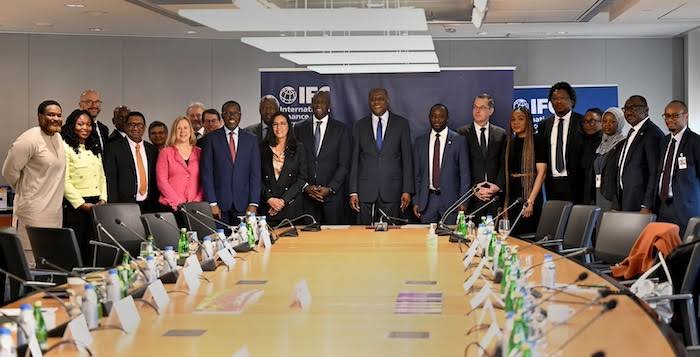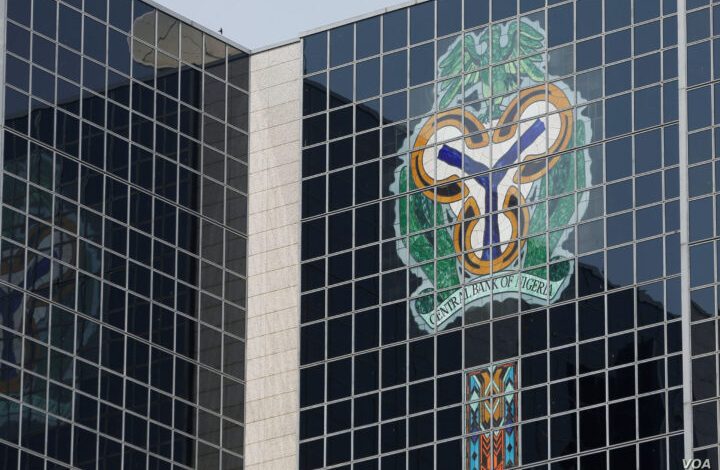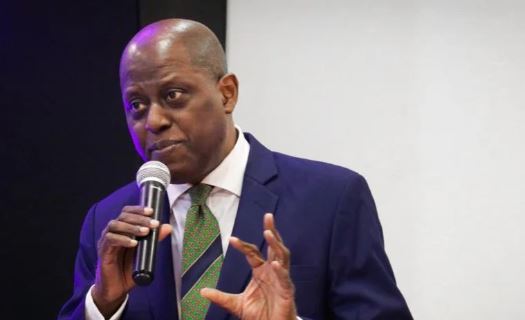By Dr Ibrahim Modibbo
In the race towards globalization and multiculturalism in modern
economies, consensus is built around strategic thinking for the common
good of the people. Conscious of the enormity of myriad of problems
confronting the Nigerian economy, the Apex Bank, Central Bank of Nigeria
is strategizing with focus on exploring the threshold of the problems with a
defined trajectory of revamping the economy.
In a world increasingly driven by the movement of people, the financial
contributions of Diasporas are becoming indispensable to many nations’
economic development.
For Nigeria, a country with one of the largest
diaspora populations globally, remittances should be considered as a
critical lifeline, not only for millions of households but for the national
economy.
Recognizing this potential, the Central Bank of Nigeria (CBN)
under the leadership of Governor Olayemi Cardoso has embarked on a
strategic campaign to strengthen the ties between the Nigerian diaspora
and the country’s financial system, with the objective of turning remittances
into a powerful engine for sustainable economic growth.
At the heart of this initiative is the CBN’s recent engagement in Houston,
Texas, where the Deputy Governor (Economic Policy), Muhammad Sani
Abdullahi, led a team of stakeholders in a forum titled “Optimizing
Remittances to Nigeria: A Vision for the Future.
” The forum, which featured
representatives from the Nigeria Inter-Bank Settlement System (NIBSS),
major Nigerian banks, and International Money Transfer Operators
(IMTOS), was part of a larger series of engagements to improve remittance
flows and maximize their impact on Nigeria’s economic development.
Remittances are a crucial component of Nigeria’s economy, with the World
Bank reporting average inflows of $20.5 billion annually over the past
decade. However, much of this money is directed towards consumption,
with only a fraction being utilized for investments that could foster long-term
development.
This is where the CBN’s current efforts are groundbreaking.
Governor Cardoso’s administration is focused on transforming remittances
from mere tools of consumption into catalysts for growth, highlighting the
importance of strategic investments in sectors like real estate, technology,
infrastructure, and manufacturing.
In addressing the Houston forum, Abdullahi highlighted the importance of
engaging the Nigerian diaspora in this vision, stressing the need to channel
remittances into productive sectors that can spur inclusive economic
growth, create jobs, and foster financial inclusion. “We are committed to
doubling the volume of capital inflows and remittances to Nigeria,”
Abdullahi said, reiterating Governor Cardoso’s focus on strengthening
Nigeria’s macroeconomic fundamentals to create an enabling environment
for private sector growth.
The point cannot be overemphasized that Governor Yemi Cardoso led
CBN has taken a bold and laudable step. With over 20 million Nigerians
living abroad, most of whom are professionals doing exceptionally well, the
potential for remittance inflows is enormous. If well-harnessed through
targeted policies, roadshows, and greater financial literacy, the Nigerian
diaspora can become a significant driver of the country’s economic
resurgence.
Nigeria is not the first country to recognize the potential of diaspora
remittances as a key driver of economic development.
Countries like India,
Mexico, and the Philippines have successfully tapped into their diaspora
populations, transforming remittances into long-term investments that have
fueled economic growth.
India, for example, has one of the largest diaspora populations in the world,
and remittances have played a pivotal role in its economic development. In
2022 alone, India received over $89 billion in remittances, accounting for
approximately 3% of its GDP. The Indian government created various
investment-friendly policies and programs that encouraged its diaspora to
[10/26, 4:23 PM] George: invest in infrastructure, real estate, and business ventures. These initiatives
transformed remittances from a safety net into a source of capital that has
helped modernize India’s economy, improve infrastructure, and boost
employment.
Similarly, Mexico’s remittance inflows-largely from the United States-
have been instrumental in reducing poverty and improving education and
healthcare in rural areas.
By fostering financial inclusion and providing
investment opportunities, the Mexican government ensured that
remittances were not just a stop-gap measure for consumption
but also a
foundation for long-term national development.
Nigeria can-and should-follow this examples.
The bold step by Governor
Cardoso and his team in initiating direct dialogue with the diaspora is a
critical first move in this direction. With the right policies, including lower
transfer costs, improved access to financial services, and incentives for
investment, Nigeria could not only increase remittance inflows but also
ensure they contribute to the country’s sustainable development.
One of the more immediate effects of harnessing remittances effectively is
the potential impact on the value of the Naira. As more foreign currency
flows into the country, the supply of foreign exchange increases, helping to
stabilize the local currency.
With Nigeria’s current struggles with exchange
rate volatility, boosting remittance inflows could play a significant role in
strengthening the Naira.
Governor Cardoso’s strategic vision is timely.
If, without targeted efforts,
Nigeria has been receiving $20.5 billion annually, there is no reason to
believe that with proper engagement, these figures cannot double or even
triple in the next few years.
As the CBN continues its outreach to Nigerians
abroad, more opportunities will open up for the diaspora to contribute to
Nigeria’s development in meaningful ways.
This is a point some of us have been advocating for years: with the
unprecedented number of Nigerians in the diaspora, if a proper roadshow
and guidelines are put in place to encourage more remittances, it will not
only boost development in the country but also strengthen the value of the
Naira. Governor Cardoso’s initiative marks a pivotal moment in this ongoing
discussion and deserves applause for taking such a bold and innovative
step.
One of the key takeaways from the Houston forum is that collaboration is
crucial.
No single institution can unlock the full value of remittances alone.
As noted by Dr. Oliver Alawuba, the Group Managing Director of UBA, the
combined efforts of banks, regulators, fintechs, and international transfer
operators are essential to creating an ecosystem where remittances can
thrive.
This is especially important as remittances transition from being a
safety net for individual households to a tool for national development.
The collaboration among the stakeholders is key as seen at the Houston
event, ensuring that remittances are not only easier to send but also more
cost-effective.
By doing so, remittances can serve as a powerful instrument
for financial inclusion, giving more Nigerians abroad access to banking
services, savings products, and investment opportunities.
With the current initiative, the CBN is positioning Nigeria to unlock the full
potential of its diaspora population. The $20.5 billion in annual remittances
is just the beginning. This figure could easily skyrocket in the coming years,
providing the necessary funds for infrastructure development, job creation,
and overall economic growth.
The bold steps taken by Governor Cardoso and his team will soon mark a
turning point in Nigeria’s economic journey. With the vision of transforming
remittances from a tool of consumption to an instrument of development,
the CBN is not only empowering the diaspora but also driving the nation
towards a brighter, more prosperous future. This is an initiative that
deserves both recognition and support.
Ibrahim Modibbo Ph.D, writes from Abuja, Nigeria







